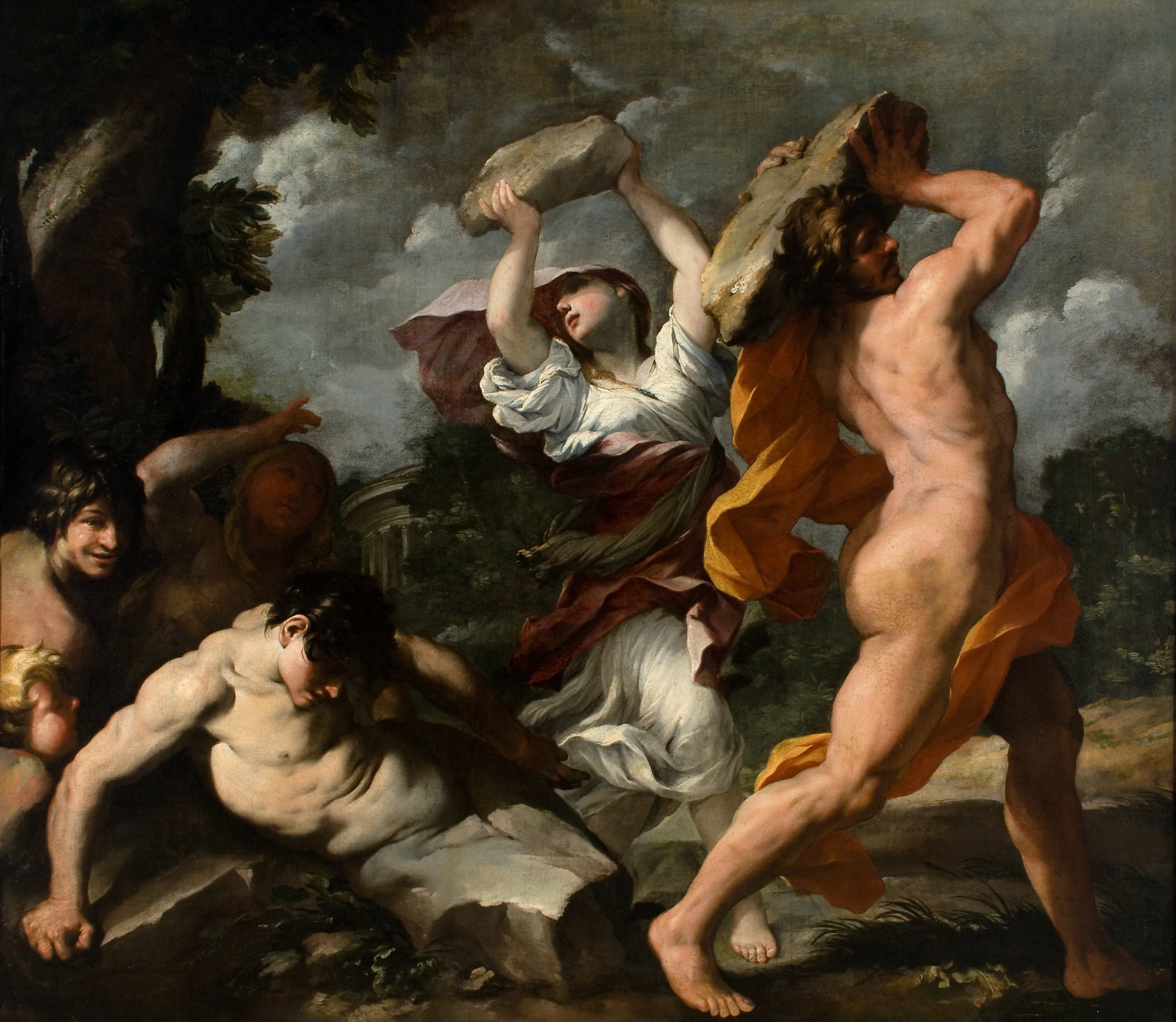Hanc quoque Phoebus amat positaque in stipite dextra
sentit adhuc trepidare novo sub cortice pectus
conplexusque suis ramos ut membra lacertis 555
oscula dat ligno; refugit tamen oscula lignum.
cui deus 'at, quoniam coniunx mea non potes esse,
arbor eris certe' dixit 'mea! semper habebunt
te coma, te citharae, te nostrae, laure, pharetrae;
tu ducibus Latiis aderis, cum laeta Triumphum 560
vox canet et visent longas Capitolia pompas;
postibus Augustis eadem fidissima custos
ante fores stabis mediamque tuebere quercum,
utque meum intonsis caput est iuvenale capillis,
tu quoque perpetuos semper gere frondis honores!' 565
finierat Paean: factis modo laurea ramis
adnuit utque caput visa est agitasse cacumen
 |
| Apollo e Dafne (Bernini) |
Anche così Febo l'ama e, poggiata la mano sul tronco,
sente ancora trepidare il petto sotto quella nuova corteccia
e, stringendo fra le braccia i suoi rami come un corpo,
ne bacia il legno, ma quello ai suoi baci ancora si sottrae.
E allora il dio: «Se non puoi essere la sposa mia,
sarai almeno la mia pianta. E di te sempre si orneranno,
o alloro, i miei capelli, la mia cetra, la faretra;
e il capo dei condottieri latini, quando una voce esultante
intonerà il trionfo e il Campidoglio vedrà fluire i cortei.
Fedelissimo custode della porta d'Augusto,
starai appeso ai suoi battenti per difendere la quercia in mezzo.
E come il mio capo si mantiene giovane con la chioma intonsa,
anche tu porterai il vanto perpetuo delle fronde!».
Qui Febo tacque; e l'alloro annuì con i suoi rami
appena spuntati e agitò la cima, quasi assentisse col capo.
Yet Phoebus loves her still, and casting round
Her bole, his arms, some little warmth he found.
The tree still panted in th' unfinish'd part:
Not wholly vegetive, and heav'd her heart.
He fixt his lips upon the trembling rind;
It swerv'd aside, and his embrace declin'd.
To whom the God, Because thou canst not be
My mistress, I espouse thee for my tree:
Be thou the prize of honour, and renown;
The deathless poet, and the poem, crown.
Thou shalt the Roman festivals adorn,
And, after poets, be by victors worn.
Thou shalt returning Caesar's triumph grace;
When pomps shall in a long procession pass.
Wreath'd on the posts before his palace wait;
And be the sacred guardian of the gate.
Secure from thunder, and unharm'd by Jove,
Unfading as th' immortal Pow'rs above:
And as the locks of Phoebus are unshorn,
So shall perpetual green thy boughs adorn.
The grateful tree was pleas'd with what he said;
And shook the shady honours of her head.


